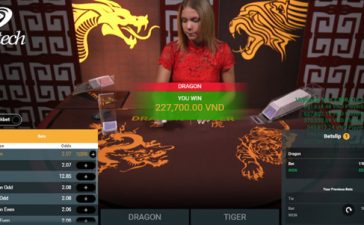In the intricate world of gaming, feedback loops serve as essential mechanisms that shape player experiences, drive strategic decision-making, and influence gameplay outcomes. A feedback loop refers to the iterative process by which actions or decisions within a game generate feedback or consequences, which, in turn, impact subsequent actions and decisions. In this article, we delve into the profound impact of feedback loops on gaming strategies, exploring how they inform player behaviors, optimize gameplay experiences, and shape the evolution of gaming dynamics.
Contents
Understanding Feedback Loops in Gaming:
Types of Feedback Loops:
Feedback loops in gaming can be categorized into various types, each with its unique characteristics and implications for gameplay. Positive feedback loops amplify the effects of actions or decisions, leading to exponential growth or escalation of outcomes. Negative feedback loops, on the other hand, counteract the effects of actions or decisions, restoring balance or equilibrium within the game environment. Balancing feedback loops maintain stability and prevent excessive deviations from desired states, ensuring a more predictable and manageable gaming experience at 91-clubb.in.
Components of Feedback Loops:
Feedback loops in gaming typically involve several components, including actions, feedback mechanisms, consequences, and adjustments. Players’ actions or decisions within the game trigger feedback mechanisms, which generate consequences or outcomes that impact subsequent actions or decisions. Based on the feedback received, players may adjust their strategies, tactics, or behaviors, leading to further iterations of the feedback loop.
Impact of Feedback Loops on Gaming Strategies:
Strategic Adaptation:
Feedback loops play a crucial role in informing strategic decision-making and adaptation within gaming environments. As players receive feedback on the outcomes of their actions or decisions, they can assess the effectiveness of their strategies and adjust their approach accordingly. Whether facing opponents in competitive multiplayer games or navigating challenges in single-player adventures, players continually iterate on their strategies based on the feedback received, optimizing their gameplay experiences and increasing their chances of success.
Skill Development and Mastery:
Feedback loops contribute to skill development and mastery by providing players with opportunities for learning, practice, and improvement. As players engage in gameplay experiences and receive feedback on their performance, they can identify areas for growth, refine their techniques, and enhance their proficiency over time. Whether mastering complex game mechanics, honing reflexes in fast-paced action games, or perfecting strategies in strategic simulations, players leverage feedback loops to develop their skills and achieve mastery in gaming.
Dynamic Balancing:
Feedback loops play a critical role in maintaining balance and equilibrium within gaming ecosystems, ensuring a fair and enjoyable experience for all players. Through balancing feedback loops, game developers can monitor gameplay dynamics, identify imbalances or issues, and implement adjustments to restore equilibrium. Whether tweaking character abilities, adjusting game mechanics, or rebalancing resource economies, developers leverage feedback loops to fine-tune gameplay experiences and foster a more enjoyable and engaging environment for players.
Player Engagement and Retention:
Feedback loops enhance player engagement and retention by providing meaningful, rewarding, and immersive gameplay experiences. As players receive feedback on their actions or decisions and witness the consequences of their choices, they become more invested in the game world and motivated to continue playing. Whether unlocking achievements, progressing through levels, or receiving in-game rewards, players are incentivized to engage with the game, explore its mechanics, and immerse themselves in its narrative, leading to increased retention and long-term engagement.
Conclusion:
Feedback loops are integral components of gaming that shape player experiences, inform strategic decision-making, and drive gameplay outcomes. Whether facilitating strategic adaptation, fostering skill development, maintaining balance, or enhancing player engagement, feedback loops play a fundamental role in optimizing gaming experiences and shaping the evolution of gaming strategies. By understanding the impact of feedback loops on gaming dynamics, players and developers alike can leverage these mechanisms to create more immersive, rewarding, and enjoyable gaming experiences for players worldwide.







